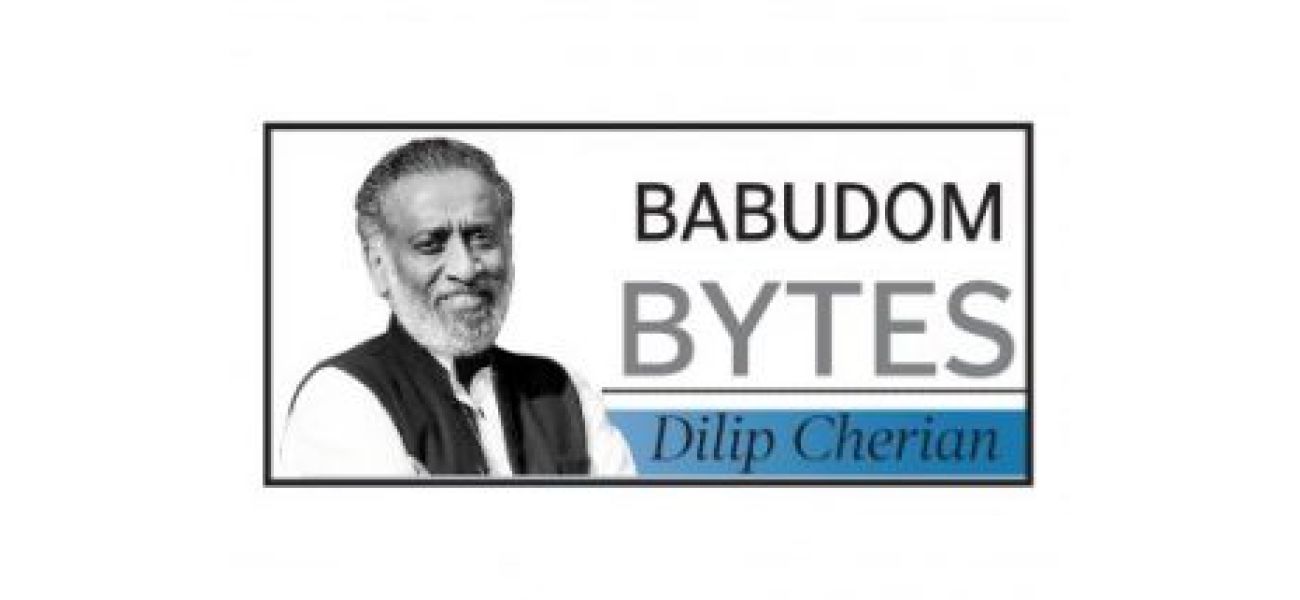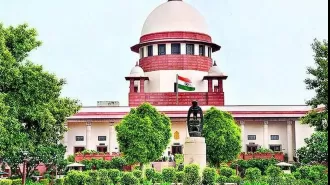The misuse of public office for personal gain within an emergency department.
When a high-ranking ED officer is implicated in a corruption scandal, it raises suspicion. And when rumors of a wider issue emerge, it's cause for concern. The ED has been in the spotlight for its work on money laundering cases, but now it's facing more scrutiny.
June 14th 2025.

When a high-ranking officer in the Enforcement Directorate is caught in a case of corruption, it's bound to raise some eyebrows. But when there are whispers of even deeper corruption within the organization, it's time to sit up and take notice.
The Enforcement Directorate, responsible for investigating money laundering cases under the PMLA, has been in the spotlight in recent years. However, the attention on them seems to be fading. This is not because they are overworked or under-resourced, but because of the individuals at the helm and their ability to lead.
Traditionally, the top positions in the ED were held by experienced IPS officers who were well-versed in dealing with criminal laws, investigative pressure, and courtroom scrutiny. But since 2016, there has been a significant shift. Officers from the revenue and finance services, with little knowledge of criminal law, have started filling these senior positions. It's like giving a calculator to an accountant and suddenly expecting them to also be proficient in handling handcuffs.
This is not just a battle for power, but a matter of competence. A former IPS officer bluntly points out that the issue is not with the authority but with the lack of training. The criminal provisions under PMLA are not just legal tools; they are legal landmines. Mishandling them can result in not only the case blowing up, but also the entire system.
The solution is clear - mandatory and rigorous training for all appointees in the Enforcement Directorate, regardless of their parent cadre. In a department where power is easily wielded, the ability to use it responsibly must be the top priority.
Moving on to a lighter topic, only in India can a steam engine enthusiast end up curating the country's most prestigious political museum - and it somehow makes perfect sense. The appointment of Ashwani Lohani as Director of the Prime Minister's Museum and Library is not just a career twist; it's a full circle.
This is the man who brought glamour to the National Rail Museum, went on to lead Air India where he was expected to perform miracles, and even chaired the Railway Board, juggling budgets and bottlenecks with a uniquely Indian blend of optimism and jugaad. Now, Lohani finds himself back on familiar tracks, though this time the engines at Teen Murti run on ideology instead of diesel. The museum, which aims to house the legacies of all of India's Prime Ministers without any controversies, could use a steady hand. Lohani has been appointed for a three-year term, but considering past precedents, he might just become the next long-term exhibit.
It's a clever move by the government. The museum, which was initially met with some opposition, now has a director who is not a political insider or a legacy warrior. Lohani possesses a rare combination of institutional nostalgia and management skills. If he can keep Air India from crashing and make a steam train smile, he might just be able to pull off the trickiest task of all - presenting India's political history without causing a coalition crisis in the galleries.
Let's hope the souvenir shop sells irony by the pound.
Moving on to some administrative news, the Gujarat government has decided to put their meetings on a diet - no more than an hour, and preferably virtual if you're joining from outside Gandhinagar. This is part of a new set of guidelines issued by the General Administration Department, following recommendations from the Gujarat Administrative Reforms Commission. The aim is to make meetings more efficient and less time-consuming.
On paper, this seems like a dream come true for anyone who has endured a three-hour meeting that could have been an email. The guidelines are crystal clear - schedule meetings at least three days in advance, share the agenda beforehand, start on time, and wrap up within an hour. District-level officers are expected to join virtually, unless there is a compelling reason to be physically present.
However, as with any reform, the success of this initiative depends on its execution. Will departments actually follow these guidelines, or will they just become another set of rules that look good on paper but are ignored in practice? Babu inertia is a force to be reckoned with, and without a robust mechanism to enforce these changes, we might find ourselves back to square one.
Moreover, while the focus on efficiency is commendable, it's important to ensure that the quality of discussions doesn't suffer. Some issues are complex and require in-depth deliberation. A rigid one-hour time limit might result in rushed decisions or superficial discussions.
Ultimately, the effectiveness of this reform will depend on the commitment of all parties involved to truly embrace the change. If implemented earnestly, it could set an example for other states to follow. However, if not, it runs the risk of becoming just another well-intentioned initiative that failed to make a real impact.
The Enforcement Directorate, responsible for investigating money laundering cases under the PMLA, has been in the spotlight in recent years. However, the attention on them seems to be fading. This is not because they are overworked or under-resourced, but because of the individuals at the helm and their ability to lead.
Traditionally, the top positions in the ED were held by experienced IPS officers who were well-versed in dealing with criminal laws, investigative pressure, and courtroom scrutiny. But since 2016, there has been a significant shift. Officers from the revenue and finance services, with little knowledge of criminal law, have started filling these senior positions. It's like giving a calculator to an accountant and suddenly expecting them to also be proficient in handling handcuffs.
This is not just a battle for power, but a matter of competence. A former IPS officer bluntly points out that the issue is not with the authority but with the lack of training. The criminal provisions under PMLA are not just legal tools; they are legal landmines. Mishandling them can result in not only the case blowing up, but also the entire system.
The solution is clear - mandatory and rigorous training for all appointees in the Enforcement Directorate, regardless of their parent cadre. In a department where power is easily wielded, the ability to use it responsibly must be the top priority.
Moving on to a lighter topic, only in India can a steam engine enthusiast end up curating the country's most prestigious political museum - and it somehow makes perfect sense. The appointment of Ashwani Lohani as Director of the Prime Minister's Museum and Library is not just a career twist; it's a full circle.
This is the man who brought glamour to the National Rail Museum, went on to lead Air India where he was expected to perform miracles, and even chaired the Railway Board, juggling budgets and bottlenecks with a uniquely Indian blend of optimism and jugaad. Now, Lohani finds himself back on familiar tracks, though this time the engines at Teen Murti run on ideology instead of diesel. The museum, which aims to house the legacies of all of India's Prime Ministers without any controversies, could use a steady hand. Lohani has been appointed for a three-year term, but considering past precedents, he might just become the next long-term exhibit.
It's a clever move by the government. The museum, which was initially met with some opposition, now has a director who is not a political insider or a legacy warrior. Lohani possesses a rare combination of institutional nostalgia and management skills. If he can keep Air India from crashing and make a steam train smile, he might just be able to pull off the trickiest task of all - presenting India's political history without causing a coalition crisis in the galleries.
Let's hope the souvenir shop sells irony by the pound.
Moving on to some administrative news, the Gujarat government has decided to put their meetings on a diet - no more than an hour, and preferably virtual if you're joining from outside Gandhinagar. This is part of a new set of guidelines issued by the General Administration Department, following recommendations from the Gujarat Administrative Reforms Commission. The aim is to make meetings more efficient and less time-consuming.
On paper, this seems like a dream come true for anyone who has endured a three-hour meeting that could have been an email. The guidelines are crystal clear - schedule meetings at least three days in advance, share the agenda beforehand, start on time, and wrap up within an hour. District-level officers are expected to join virtually, unless there is a compelling reason to be physically present.
However, as with any reform, the success of this initiative depends on its execution. Will departments actually follow these guidelines, or will they just become another set of rules that look good on paper but are ignored in practice? Babu inertia is a force to be reckoned with, and without a robust mechanism to enforce these changes, we might find ourselves back to square one.
Moreover, while the focus on efficiency is commendable, it's important to ensure that the quality of discussions doesn't suffer. Some issues are complex and require in-depth deliberation. A rigid one-hour time limit might result in rushed decisions or superficial discussions.
Ultimately, the effectiveness of this reform will depend on the commitment of all parties involved to truly embrace the change. If implemented earnestly, it could set an example for other states to follow. However, if not, it runs the risk of becoming just another well-intentioned initiative that failed to make a real impact.
[This article has been trending online recently and has been generated with AI. Your feed is customized.]
[Generative AI is experimental.]
0
0
Submit Comment





